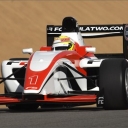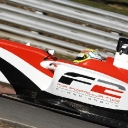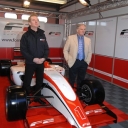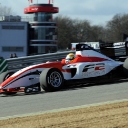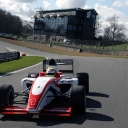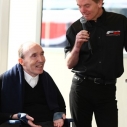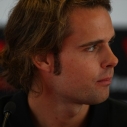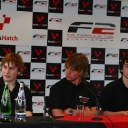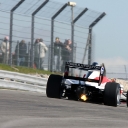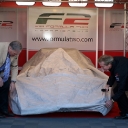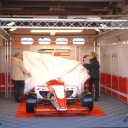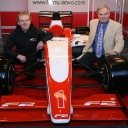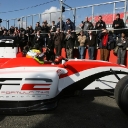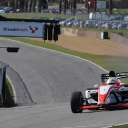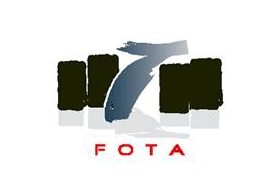 The Formula One Teams’ Association (FOTA) today outlined its roadmap for Formula One at a press conference in Geneva at which senior management figures from all 10 current Formula One teams shared the stage together.
The Formula One Teams’ Association (FOTA) today outlined its roadmap for Formula One at a press conference in Geneva at which senior management figures from all 10 current Formula One teams shared the stage together.
The proposals are aimed at increasing the stability, sustainability, substance and show of Formula One, and have all been developed as a result of rigorous interrogation of a FOTA global audience survey carried out in 17 countries earlier this year.
The proposals cover both 2009 and 2010 and so include some already announced such as testing reductions and fixed price engines and gearboxes.
One of the key findings of the audience survey was that Formula One wasn’t fundamentally broken. This is good news. Both Ron Dennis and Sir Frank Williams have warned that any moves toward dumbing down Formula One or turning it into a spec series would risk driving away fans, drivers and engineers so the following statement from FOTA is encouraging:
There is no evidence to suggest that grand prix formats need tricking up via, for
example, handicapping, sprint races, reversed grids or one-on-one pursuit races. Formula One audiences appreciate the traditional gladiatorial, high-tech nature of the sport and would not respond favourably to a perceived dumbing down of the current format.
A new points scoring system has been proposed to make winning grands prix count for more than it did last season. Points would still be limited to the top 8 places but those drivers scoring a podium would earn more than they do currently. This seems like a good compromise between Bernie Ecclestone’s radical medals scheme and the current points system.
Surprisingly, FOTA are suggesting further reductions in testing for 2010 (four four-day single-car pre-season tests plus one single-car pre-season shakedown.) If anything I would have expected an increase in testing as between hailstorms in Europe and sandstorms in the Middle East the teams haven’t managed to get a lot of miles in this year. They must not think it’s such a problem.
Felipe Massa must like the look of the suggestion to reduce the race distances to 250km or a maximum of one hour 40 minutes. Earlier this week he told the Roman paper La Repubblica:
Nothing happens in the last 15 laps.
I’m not so sure. Plenty happened in the last 15 laps in Brazil. Perhaps if the race had finished 15 laps earlier then Glock could have held his position on dry tyres and Massa would be World Champion…
FOTA also recognises that F1’s media potential is not being fully exploited, in particular via the internet. FIA president Max Mosley suggested earlier this year that Formula One was neglecting the power of the internet but the sport’s commercial rights holder, Bernie Ecclestone, is known for his reluctance to embrace the online world.
The key proposals are below:
Technical
2009:
- More than 100% increase in mileage per engine (eight engines per driver per season)
- Reduction in wind tunnel and CFD (computational fluid dynamics) usage
- Engine available at 8 million per team per season
2010:
- Engine available at 5 million per team per season
- Gearbox available at 1.5 million per team per season
- Standardised KERS (put out to tender, with a target price of 1-2 million per team per season)
- Target a further 50% reduction of the 2009 aerodynamic development spend
- Specified number of chassis, bodywork and aerodynamic development iterations (homologations) during the season
- Prohibition of a wide range of exotic, metallic and composite materials
- Standardised telemetry and radio systems
Sporting
2009:
- Testing reduction (50%)
- New points-scoring system (12-9-7-5-4-3-2-1), to give greater differentiation/reward to grand prix winners
- Race starting fuel loads, tyre specifications and refuelling data to be made public
2010:
- Commitment to recommend new qualifying format
- Radical new points-scoring opportunities (eg, one constructors’ championship point to be awarded for the fastest race pit stop)
- Further testing reductions (four four-day single-car pre-season tests plus one single-car pre-season shakedown)
- Reduction of grand prix duration (250km or a maximum of one hour 40 minutes) pending the approval of the commercial rights holder
Commercial
2009:
- Increased data provision for media
- Explore means by which the presentation of Formula One action can be more informatively and dynamically presented, common to other sports such as tennis and cricket, to dramatically improve engagement with the public
- Nominated senior team spokesman available for TV during grand prix
- Commitment to enhance consumer experience via team and FOTA websites
- Mandatory driver autograph sessions during grand prix weekends
2010:
- Commitment to enhance consumer experience via TV coverage
![]() After months of speculation, rumour and no comment an official announcement has finally been made that the Team Formerly Known As Honda has been sold to Ross Brawn and will be named Brawn GP. The name is still subject to approval by the FIA but at least there is no ‘F1’ in the name so Bernie shouldn’t object.
After months of speculation, rumour and no comment an official announcement has finally been made that the Team Formerly Known As Honda has been sold to Ross Brawn and will be named Brawn GP. The name is still subject to approval by the FIA but at least there is no ‘F1’ in the name so Bernie shouldn’t object. The Formula One Teams’ Association (FOTA) today outlined its roadmap for Formula One at a press conference in Geneva at which senior management figures from all 10 current Formula One teams shared the stage together.
The Formula One Teams’ Association (FOTA) today outlined its roadmap for Formula One at a press conference in Geneva at which senior management figures from all 10 current Formula One teams shared the stage together.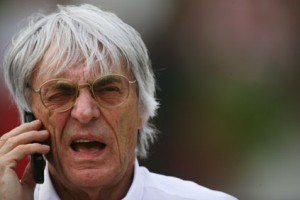 After the
After the 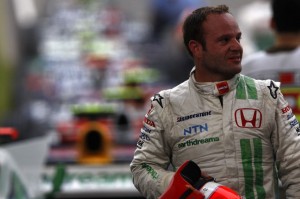 It looks like Rubens Barichello, the most experienced driver in Formula One, will be back with the soon to be renamed Honda F1 team in 2009.
It looks like Rubens Barichello, the most experienced driver in Formula One, will be back with the soon to be renamed Honda F1 team in 2009.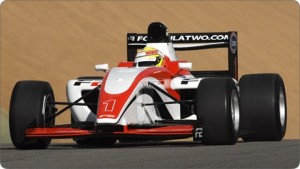 The new JPH01 Formula Two car was unveiled at Brands Hatch on Monday. The car was rolled out in front of Sir Frank Williams and Patrick Head before British Touring Car driver Steven Kane took it out on the track.
The new JPH01 Formula Two car was unveiled at Brands Hatch on Monday. The car was rolled out in front of Sir Frank Williams and Patrick Head before British Touring Car driver Steven Kane took it out on the track.